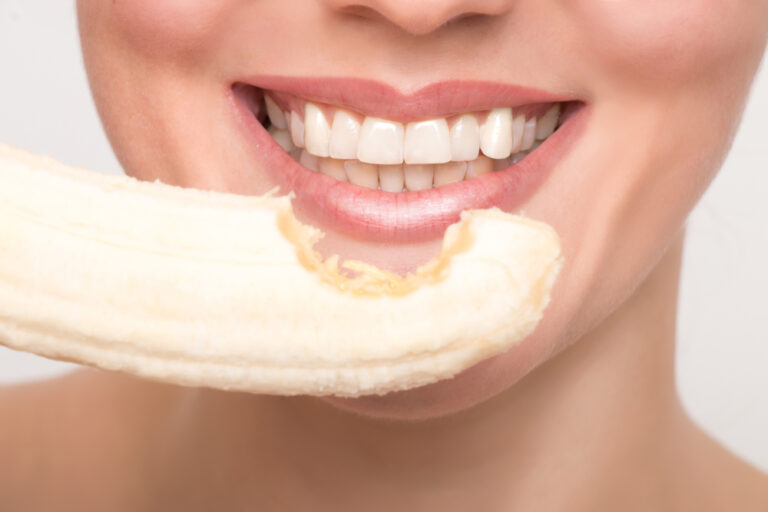If you’re experiencing tooth sensitivity, you may be wondering whether it will go away on its own. The answer is that it depends on the cause of your sensitivity. In some cases, sensitivity may improve or disappear without treatment, while in other cases, it may require professional dental care.
Tooth sensitivity usually occurs when the underlying layer of your teeth, called dentin, becomes exposed. This can happen due to erosion or wear and tear, as well as gum recession, where your gum tissue pulls away from your teeth and exposes the roots. If your sensitivity is caused by mild gum recession or minor enamel erosion, it may improve over time without treatment. However, if your sensitivity is caused by more severe issues, such as cavities, gum disease, or tooth fractures, it’s important to seek professional dental care to prevent further damage and alleviate your symptoms.
In some cases, tooth sensitivity may also be a temporary side effect of certain dental procedures, such as fillings or root canal therapy. If this is the case, your sensitivity will usually go away on its own within a few days or weeks. However, if your sensitivity persists or worsens, it’s important to follow up with your dentist to ensure that there are no underlying issues that require treatment.
Understanding Tooth Sensitivity

If you’ve ever experienced a sharp pain in your teeth while eating or drinking something hot or cold, you may have tooth sensitivity. Tooth sensitivity is a common dental problem that affects many people. It occurs when the underlying layer of your teeth, the dentin, becomes exposed. The dentin contains tiny tubules that allow heat, cold, and acidic or sticky foods to reach the nerves and cells inside the tooth, causing pain or discomfort.
Tooth sensitivity can affect one or more teeth and can be temporary or chronic. It can range from mild to severe and can be triggered by a variety of factors, including:
- Brushing your teeth too hard or using a hard-bristled toothbrush
- Gum recession due to aging or gum disease
- Tooth decay or cavities
- Dental procedures such as fillings, crowns, or teeth whitening
- Acidic foods and drinks such as citrus fruits, soda, and wine
- Grinding or clenching your teeth
- Cracked or chipped teeth
Tooth sensitivity can be a sign of a more serious dental problem, such as a cracked tooth, a root canal infection, or gum disease. Therefore, it’s important to see your dentist if you experience tooth sensitivity that persists or worsens over time.
Fortunately, tooth sensitivity can often be treated or managed with simple changes to your oral hygiene routine or lifestyle habits. In the next section, we’ll discuss some of the common remedies and treatments for tooth sensitivity.
Causes of Tooth Sensitivity
If you are experiencing tooth sensitivity, it is important to understand what may be causing it. Here are some common causes of tooth sensitivity:
Enamel Erosion
Enamel erosion occurs when the hard outer layer of your teeth wears away, exposing the dentin underneath. This can be caused by a number of factors, including:
- Acidic foods and drinks
- Brushing too hard
- Acid reflux disease
- Certain medications
- Bulimia or other eating disorders
Gum Recession
Gum recession is when your gum tissue pulls away from your teeth, exposing the roots. This can be caused by:
- Gum disease
- Brushing too hard
- Aging
- Genetics
Tooth Decay
Tooth decay, also known as cavities, can cause tooth sensitivity. When the decay reaches the inner layer of your tooth, called the pulp, it can cause pain and sensitivity. This can be caused by:
- Poor oral hygiene
- Eating sugary or acidic foods and drinks
- Not getting regular dental check-ups and cleanings
By understanding the causes of tooth sensitivity, you can take steps to prevent it from happening in the first place. If you are already experiencing tooth sensitivity, talk to your dentist about the best course of treatment for your specific situation.
Can Tooth Sensitivity Go Away On Its Own?

Tooth sensitivity can be a real pain, literally. It can make enjoying your favorite foods and drinks difficult, and even brushing your teeth can be uncomfortable. So, can tooth sensitivity go away on its own? The answer is yes and no.
In some cases, tooth sensitivity can go away on its own if the underlying cause is temporary. For example, if you have recently had a dental procedure or treatment, such as a filling or teeth whitening, you may experience sensitivity for a few days or weeks afterwards. In this case, the sensitivity should gradually subside as your teeth heal.
However, if your tooth sensitivity is caused by a more serious issue, such as tooth decay or gum disease, it is unlikely to go away on its own. In fact, ignoring these issues can lead to more serious dental problems down the road.
It’s important to note that even if your tooth sensitivity does go away on its own, it may return if you don’t take steps to prevent it. This means practicing good oral hygiene, avoiding acidic and sugary foods and drinks, and using a soft-bristled toothbrush and fluoride toothpaste.
If you are experiencing tooth sensitivity, it’s always best to consult with your dentist to determine the underlying cause and get the appropriate treatment. Your dentist can also provide advice on how to manage your sensitivity and prevent it from returning in the future.
Preventative Measures for Tooth Sensitivity
If you are experiencing tooth sensitivity, there are a few preventative measures you can take to help alleviate your symptoms. By following proper oral hygiene and making dietary changes, you may be able to reduce or even prevent tooth sensitivity.
Proper Oral Hygiene
One of the most important steps you can take to prevent tooth sensitivity is to maintain proper oral hygiene. This includes brushing your teeth twice a day with a soft-bristled toothbrush and fluoride toothpaste. Be sure to brush gently and avoid brushing too hard, as this can cause further damage to your teeth and gums.
In addition to brushing, it is important to floss daily to remove any food particles and plaque that may be trapped between your teeth. Using an antiseptic mouthwash can also help kill bacteria and freshen your breath.
Dietary Changes
Another way to prevent tooth sensitivity is to make dietary changes. Avoid consuming foods and drinks that are high in sugar and acid, as these can erode your tooth enamel and expose the sensitive dentin layer underneath. Instead, opt for foods that are rich in calcium and phosphorus, such as dairy products, leafy greens, and nuts.
It is also important to limit your intake of acidic drinks such as soda, sports drinks, and fruit juices. If you do consume these beverages, use a straw to minimize contact with your teeth and rinse your mouth with water afterwards.
By following these preventative measures, you can help reduce your risk of tooth sensitivity and maintain good oral health.
Treatment Options for Tooth Sensitivity

If you are experiencing tooth sensitivity, there are a few treatment options available to help alleviate your discomfort. Here are two common treatment options for tooth sensitivity:
Desensitizing Toothpaste
Desensitizing toothpaste is a popular and effective treatment option for tooth sensitivity. These toothpastes contain compounds that help block the transmission of sensations from the tooth surface to the nerve, reducing the amount of pain you feel.
When using desensitizing toothpaste, make sure to brush your teeth gently with a soft-bristled toothbrush. Brushing too hard can actually make your tooth sensitivity worse. You should also use the toothpaste consistently for several weeks to see the best results.
Dental Procedures
If desensitizing toothpaste does not provide enough relief, there are several dental procedures that can help treat tooth sensitivity:
- Fluoride Gel or Varnish: Your dentist may apply a fluoride gel or varnish to the sensitive areas of your teeth to help strengthen the enamel and reduce sensitivity.
- Bonding: If your tooth sensitivity is caused by exposed tooth roots, your dentist may apply a bonding resin to the affected areas to protect the roots and reduce sensitivity.
- Inlays or Crowns: In some cases, tooth sensitivity may be caused by a cavity or a damaged tooth. Your dentist may recommend an inlay or crown to repair the tooth and reduce sensitivity.
- Root Canal: If your tooth sensitivity is severe and not relieved by other treatment options, your dentist may recommend a root canal to remove the inflamed or infected pulp from the tooth.
It is important to talk to your dentist about your tooth sensitivity and which treatment option is right for you. Your dentist can help you determine the cause of your sensitivity and recommend the best course of treatment.
Frequently Asked Questions
What causes sudden tooth sensitivity?
Sudden tooth sensitivity can be caused by a variety of factors. Some common causes include tooth decay, gum disease, teeth grinding, and aggressive brushing or flossing. Other factors that can contribute to tooth sensitivity include acidic foods and drinks, tooth whitening products, and certain medications.
What are the symptoms of tooth sensitivity?
The most common symptom of tooth sensitivity is pain or discomfort when eating or drinking hot or cold foods and beverages. Other symptoms may include pain when biting or chewing, sensitivity to air or pressure, and discomfort or pain when brushing or flossing.
How long does it take for tooth sensitivity to go away?
The length of time it takes for tooth sensitivity to go away depends on the cause of the sensitivity. In some cases, sensitivity may go away on its own within a few days or weeks. However, if the sensitivity is caused by a more serious underlying condition, it may take longer to resolve.
Can tooth sensitivity be cured naturally?
There are several natural remedies that can help to alleviate tooth sensitivity. These include using a soft-bristled toothbrush, avoiding acidic foods and drinks, using fluoride toothpaste, and practicing good oral hygiene. Additionally, there are several home remedies that may help to reduce sensitivity, such as oil pulling, saltwater rinses, and clove oil.
Can tooth sensitivity come and go?
Yes, tooth sensitivity can come and go depending on the cause of the sensitivity. For example, sensitivity caused by temporary gum irritation may come and go, while sensitivity caused by tooth decay or gum disease may persist until the underlying condition is treated.
What can I do to prevent tooth sensitivity?
To prevent tooth sensitivity, it is important to practice good oral hygiene, including brushing twice a day with a fluoride toothpaste and flossing daily. Additionally, it is important to avoid acidic foods and drinks, limit consumption of sugary foods and drinks, and avoid clenching or grinding your teeth. If you are experiencing tooth sensitivity, it is important to see a dentist to determine the underlying cause and develop an appropriate treatment plan.







